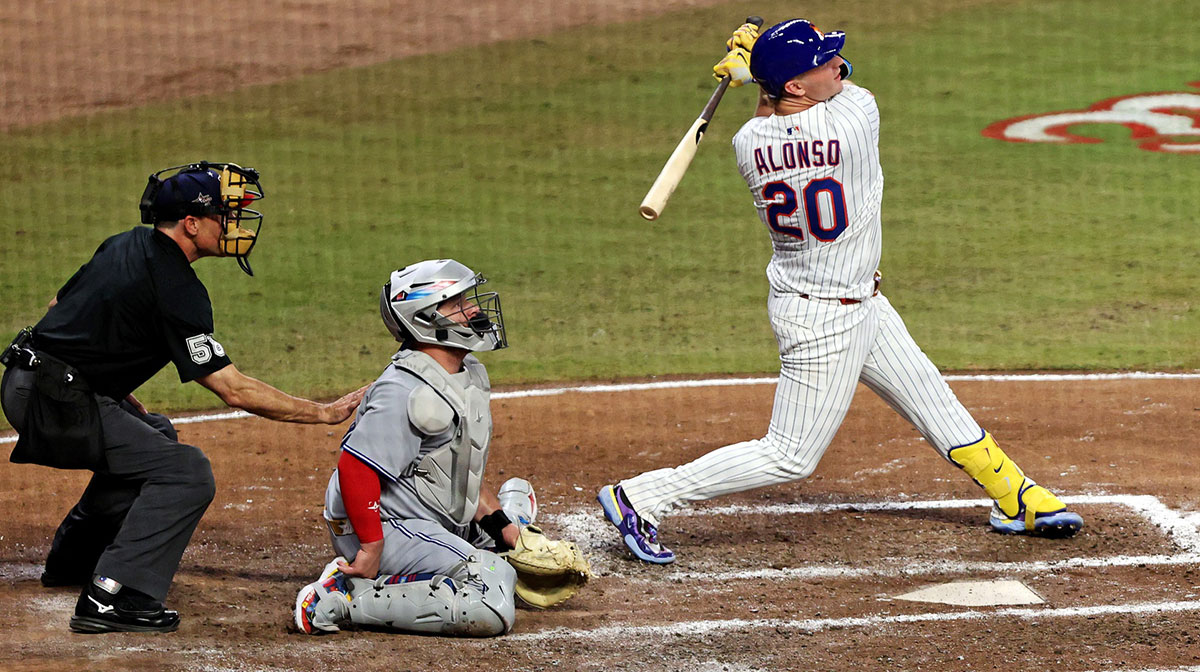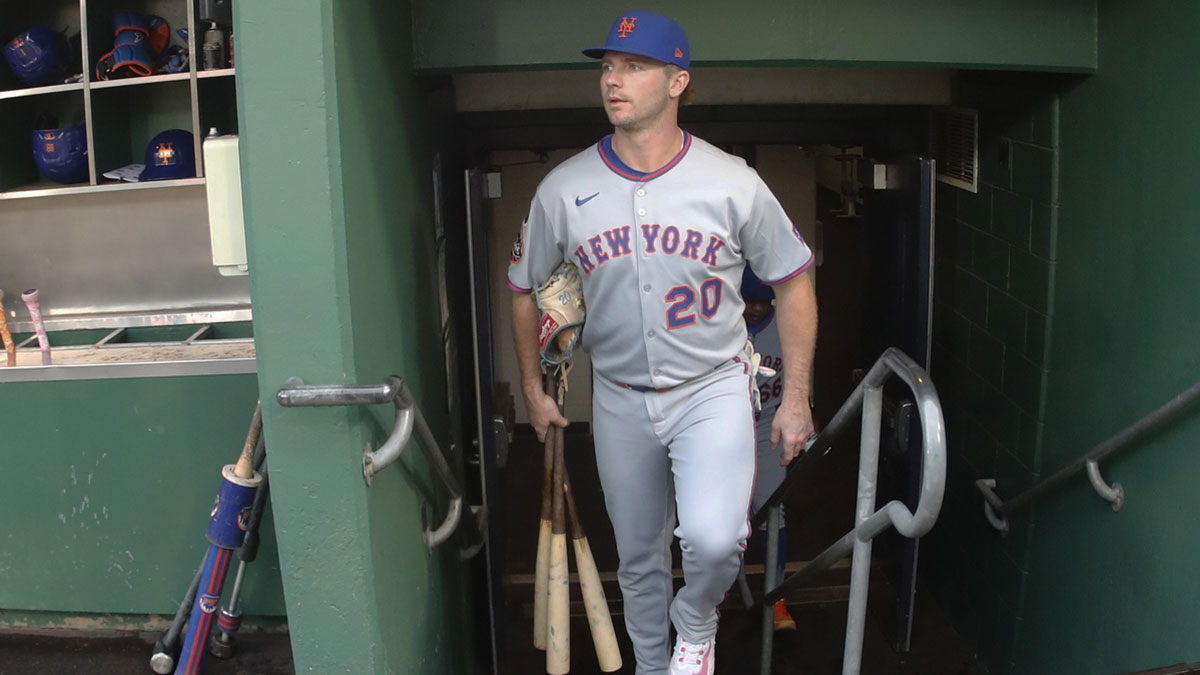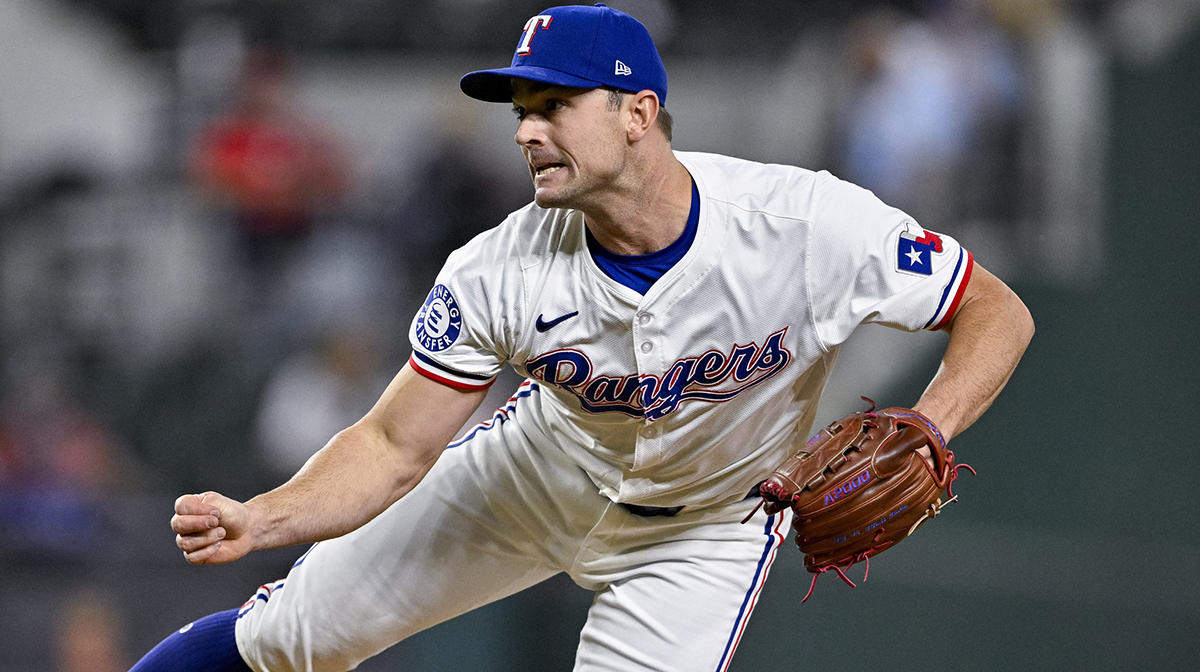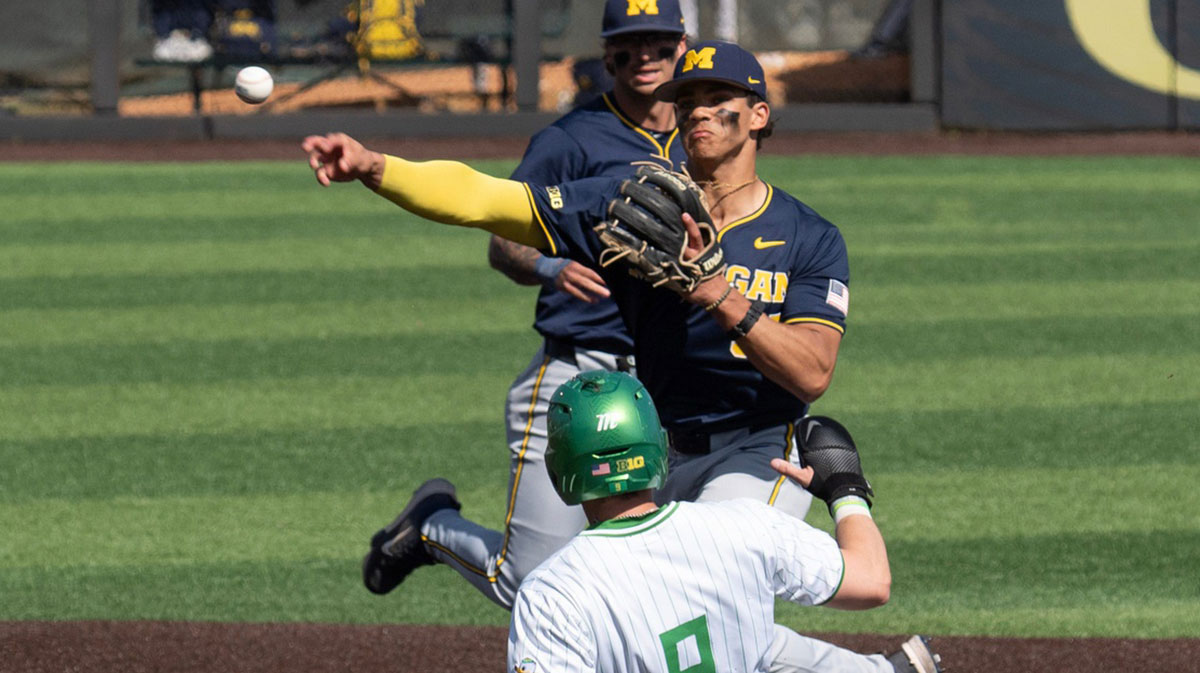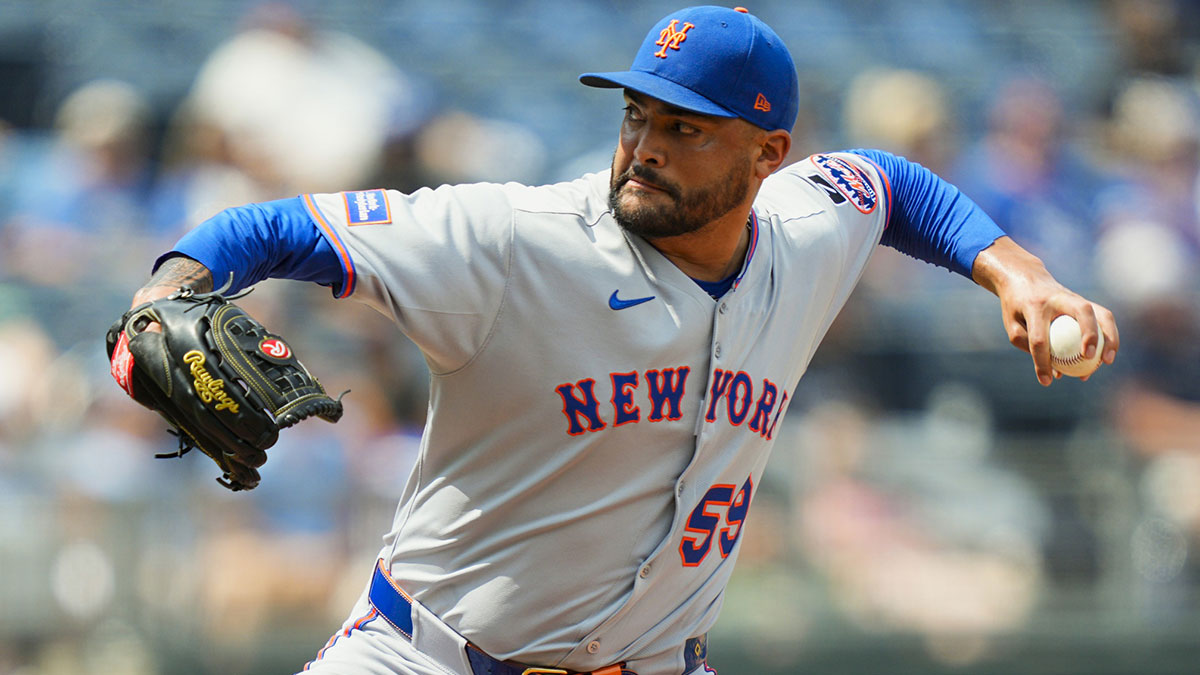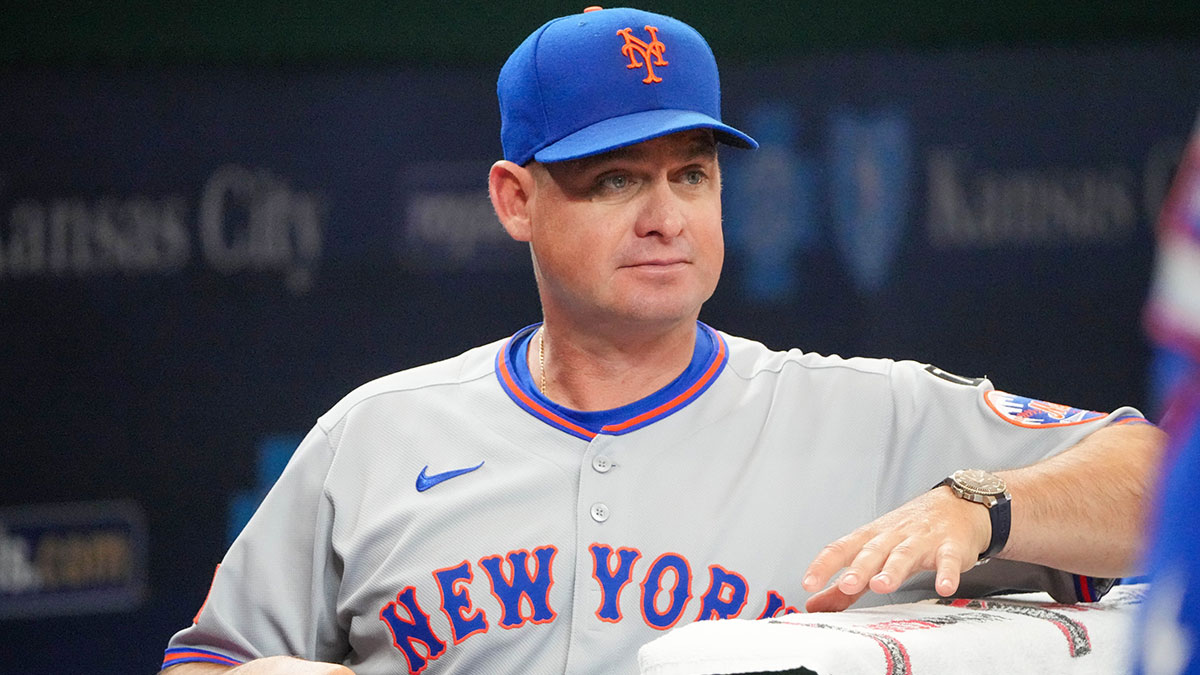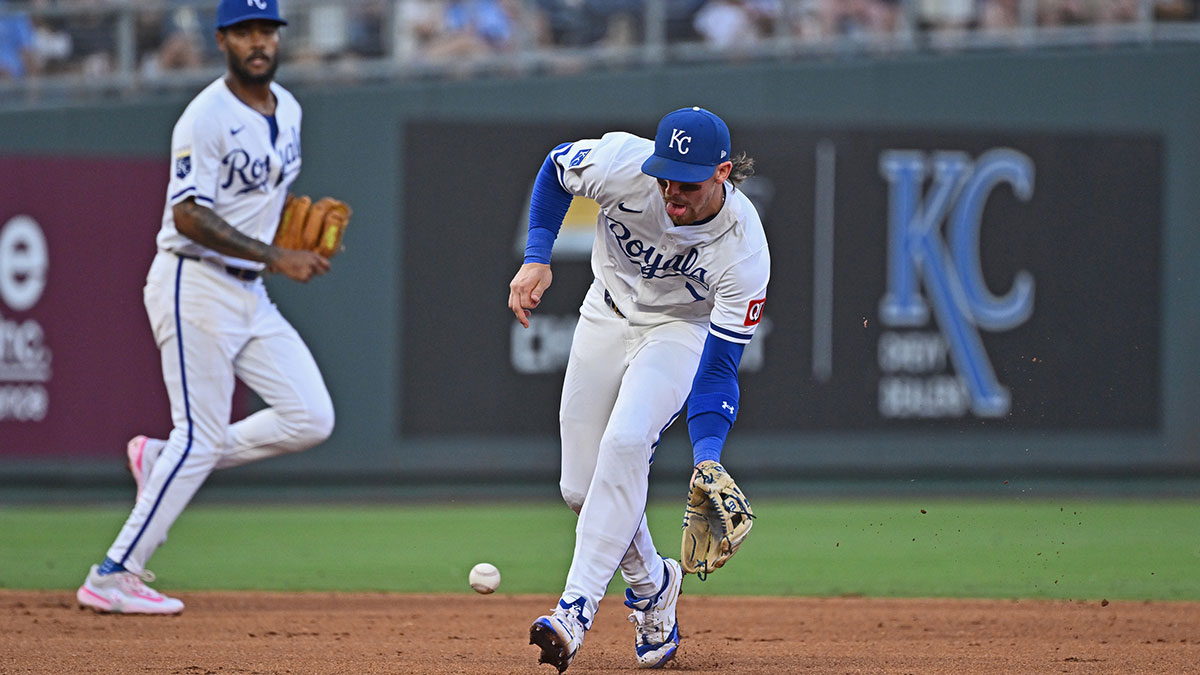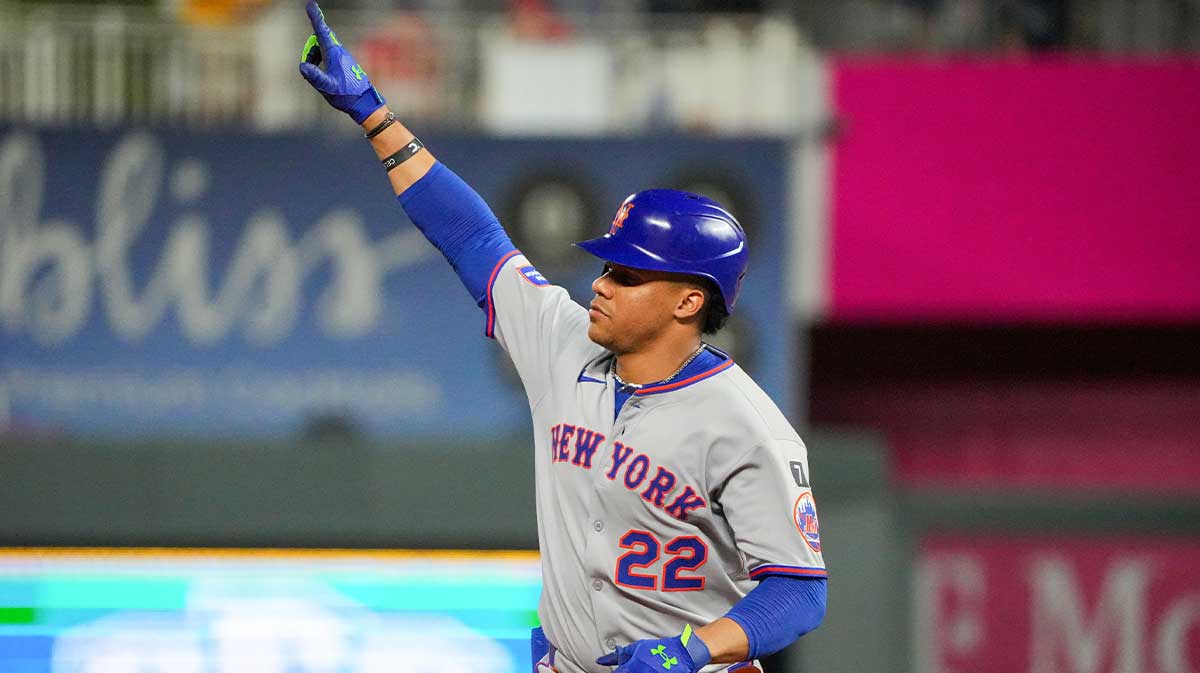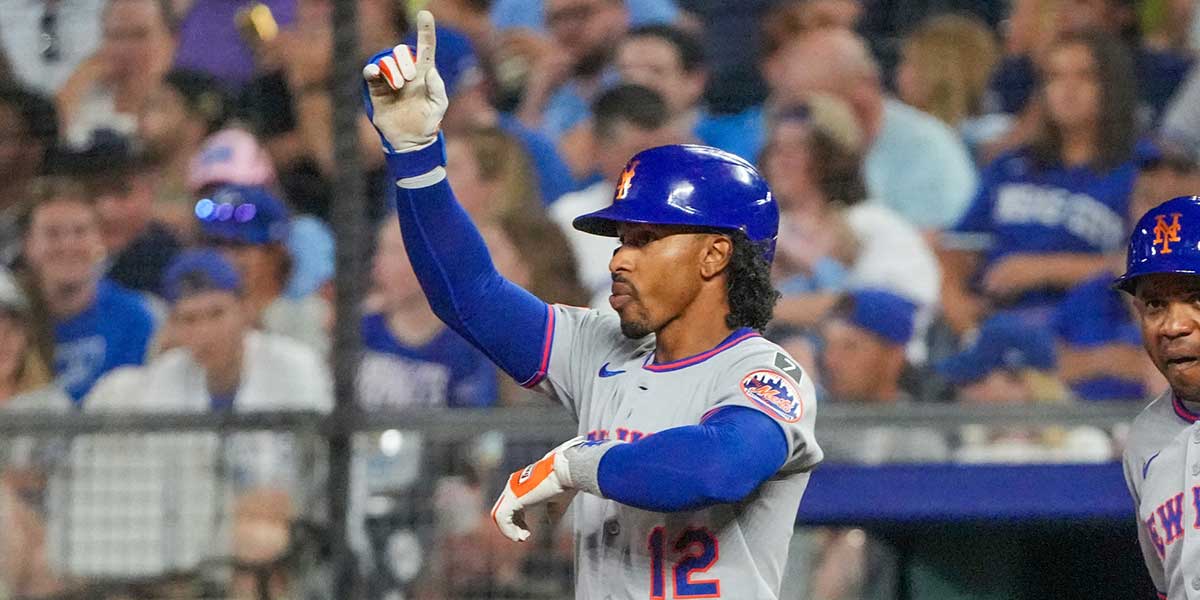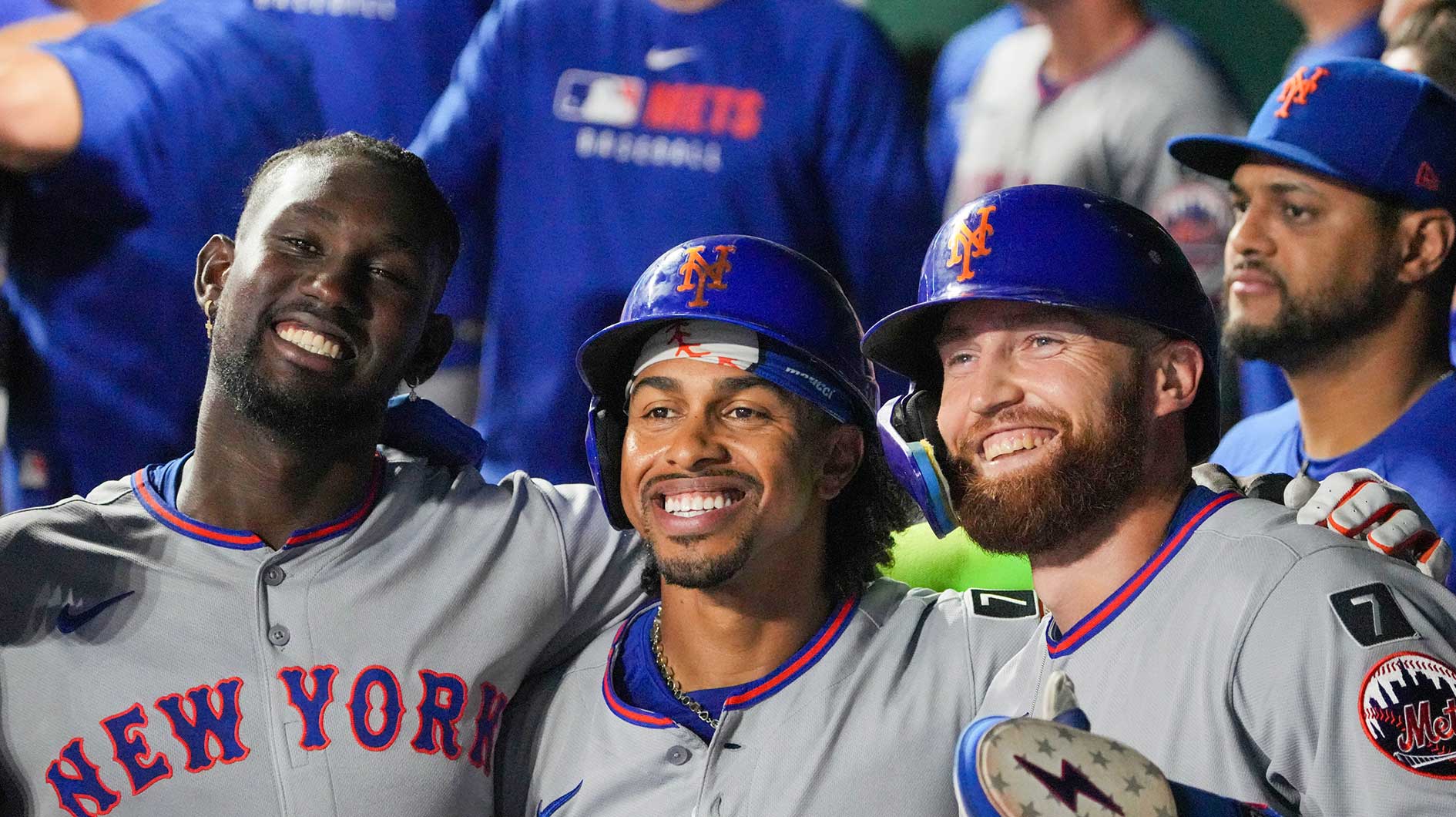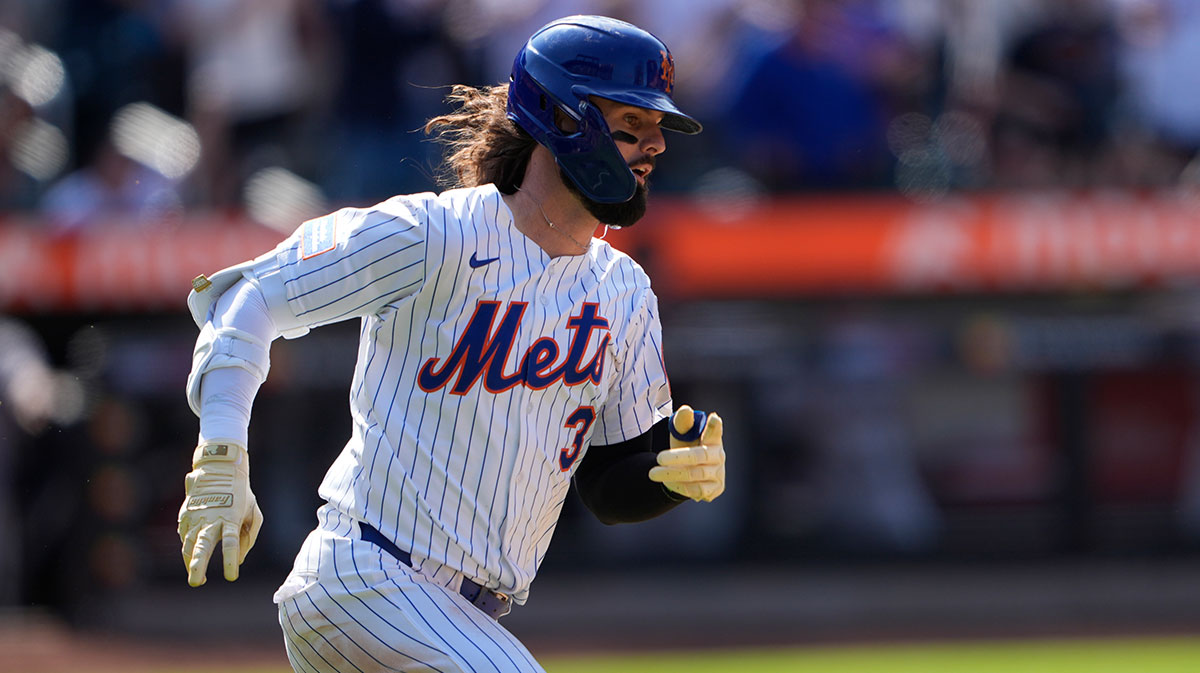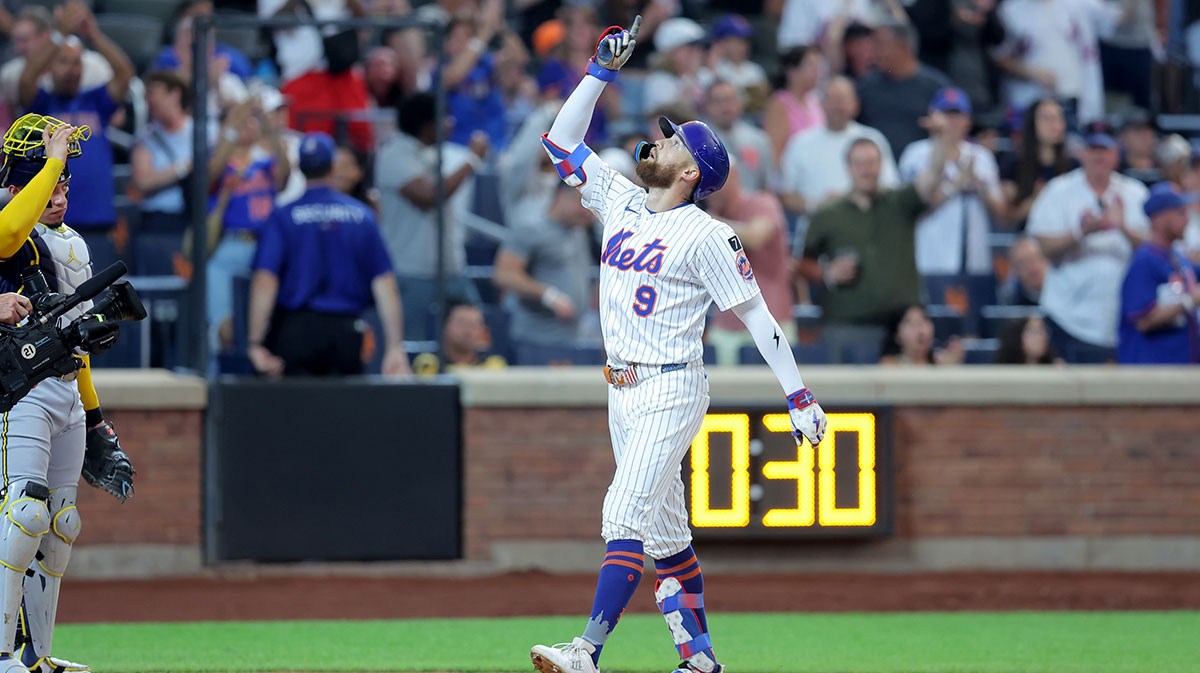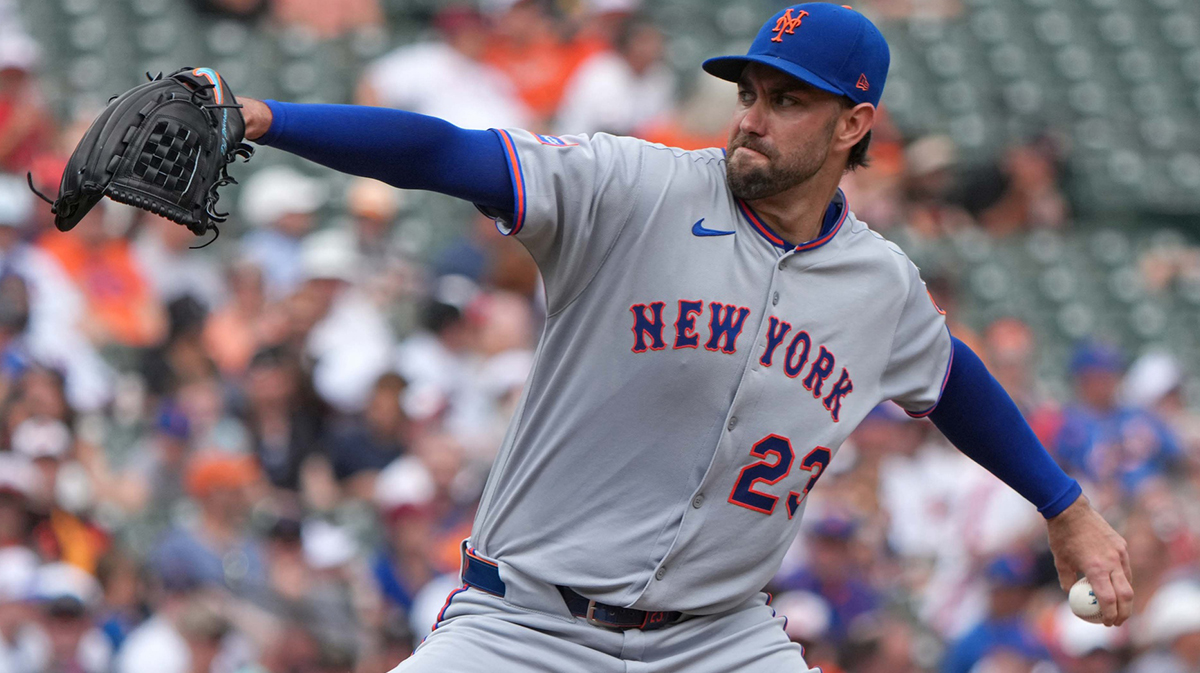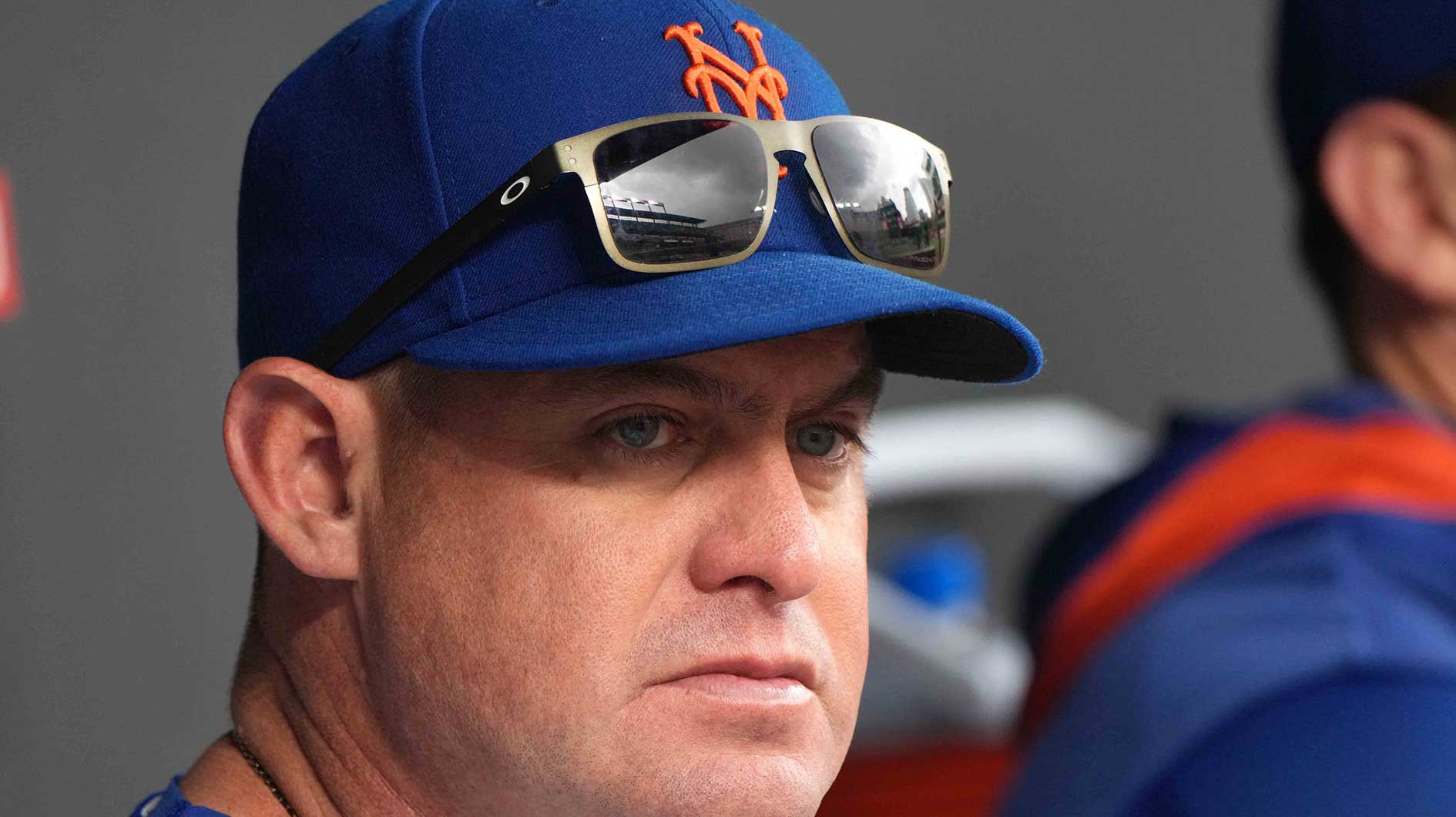If the 2018-19 MLB offseason has made anything clear, it is that star players are getting paid.
Despite a lengthy process, both Manny Machado and Bryce Harper ended up with record-breaking deals in free agency. Even more notably, stars such as Nolan Arenado, Mike Trout, Chris Sale, Paul Goldschmidt Justin Verlander and Alex Bregman got big money to stay with their current clubs for the foreseeable future.
And on Tuesday morning, NL Cy Young Jacob deGrom — finally — reached a five-year extension with the New York Mets:
BREAKING: The Mets have a deal on a contract extension with Jacob deGrom, per source. It is pending a physical. He is in NY right now for physical.
— Andy Martino (@martinonyc) March 26, 2019
DeGrom agreed to new, five-year, $137.5M contract with #Mets, sources tell The Athletic. Covering 2019 to ‘23 with club option for ‘24. Opt-out after ‘22. Deal first reported: @MartinoNYC.
— Ken Rosenthal (@Ken_Rosenthal) March 26, 2019
The deal could max out at six years and $170 million if deGrom declines his opt-out and the team accepts the club option.
Breaking it down
Some very important things to note with this new contract, which is practically identical to Sale's prior to a potential player opt-out. Although he will still make $17 million this year, deGrom will make $90 million from 2020-2022, which is exactly the same value of Sale's first three years.
The placement of the opt-out is crucial for both Sale and deGrom, who are separated by just one year. Sale will be entering his age-34 season in 2023, while deGrom will be turning 35. Should they continue to pitch at Cy Young levels, there is the potential for signing a separate two-year deal with another club at a higher AAV. This is especially true for deGrom, given that the Mets would have a club option in 2024 should he remain with the team.
So even though deGrom will be making a lower AAV than Verlander, Clayton Kershaw, Max Scherzer and Zack Greinke, the opt-out gives him more flexibility, and he is getting $1 million more in annual value than Sale, which is notable given the similarities in the structure of their contracts.
The deal makes plenty of sense for both sides. New York is in position to contend at least for this year, but locking down deGrom till–at the very least–2022 extends the window and shows that the club is committed to retaining their premium talent. Ken Rosenthal of The Athletic probably put it best:
#Mets also understood, despite deGrom’s relatively advanced age and previous Tommy John surgery, that they could not be one team in extension-crazed environment to say no. NYM ownership often criticized for lack of spending. In case of deGrom, they took on significant risk.
— Ken Rosenthal (@Ken_Rosenthal) March 26, 2019
Given the “bell curve” nature of extension talks between deGrom and the Mets, especially, getting this deal done before deGrom's self-imposed deadline of Opening Day was absolutely crucial.
The extension trend continues
While Machado and Harper got their due as stars in free agency, other players settled for less than their market value. Mike Moustakas and Brian Dozier both signed one-year deals for less than $10 million. Marwin Gonzalez was hoping to receive closer to four years and $48 million, and instead got two years and $21 million from the Twins. Oh, and both Dallas Keuchel and Craig Kimbrel remain unsigned
Sure, Patrick Corbin got paid and earned a long-term deal. But he is still under 30 and coming off the best season of his career. How many players in their thirties received a deal longer than three years? The answer is just one: Dodgers centerfielder A.J. Pollock, who signed a five-year deal with Los Angeles.
The reality is that teams are willing to spend to acquire stars or keep them around, but anything else is becoming a stretch. Consider this nugget from Jeff Passan of ESPN:
In the last week, Major League Baseball teams have guaranteed more than $1 billion to 10 players via contract extensions. Five of those deals — Mike Trout, Chris Sale, Jacob deGrom, Paul Goldschmidt and Alex Bregman — were for nine figures. The total spent: $1,073,000,000.
— Jeff Passan (@JeffPassan) March 26, 2019
And that number could just as easily have come closer to $1.5 billion or even $2 billion if two big-market teams like the Red Sox andCubs decided to extend Mookie Betts and Kris Bryant, respectively.
Additionally, the tendency for MLB clubs to keep premium prospects in the minor leagues and acquire more years of team control make it easier for them to reach extensions with these players, because most of them will not reach free agency until after their age-30 seasons. Thus, why not take a contract that bypasses arbitration and ensures immediate financial gains, while still affording the option of entering free agency in the early or mid-30s? The move almost always makes sense for both sides.
Therein lies two very consequential issues for the MLB and MLBPA to hash out moving forward: service time and payroll. With organizational stars in big markets making an exorbitant amount of the money in the metaphorical pot, there will will need to be discussions about payroll distribution and reconfiguring the rules of service time.
All of that having been said, Jacob deGrom could care less. He has his big-money deal, and the Mets are better off.


